SHOPS Plus program in Nigeria works in the areas of family planning and tuberculosis. The country's rapidly increasing population has created pressure on its health system. High birth rates are accompanied by low uptake of family planning services, resulting in high levels of unmet need. Nigeria also has one of the lowest case detection rates among high tuberculosis burden countries. The private sector is an important source of health care in the country and is the preferred source for short-acting contraceptive methods. However, it is an underused resource for diagnosis of tuberculosis.
Nigeria is the seventh most populous country in the world with 193 million people. The most recent national health accounts data estimate that 68 percent of health expenditures occur in the private sector; therefore, it is imperative that facilities in both the private and public sectors provide quality services. The SHOPS Plus program focuses on family planning and tuberculosis.
Family planning
The limited availability of providers trained on the delivery of the full method mix at the community health extension worker level, continues to be a significant barrier to family planning services resulting in the low use of modern contraceptives. Therefore, increasing access to effective training for these providers is essential.
SHOPS Plus has enhanced the existing provider training and supervision systems, trained 931 providers of which 546 are CHEWS (59%) , and reached over 110,000 new users of family planning, including long-acting reversible contraceptives (LARCs) in four states (Federal Capital Territory, Plateau, Akwa Ibom, and Oyo). The project collaborates with other USAID projects (Breakthrough Action and Global Health Supply Chain - Procurement Supply Management) to address social and behavior change, as well as contraceptive commodity security.
Highlights from family planning program activities:
Tuberculosis (TB)
Despite its high incidence of tuberculosis, Nigeria has one of the lowest case detection rates among high TB burden countries. With an estimated 440,000 cases in 2019 according to the WHO, just over a quarter of these cases were reported as receiving treatment. Strengthening the private sector’s capacity to detect and treat TB is vital to reducing its incidence rate in the country.
SHOPS Plus’s approach to increasing the availability of and access to TB services in the private sector in Nigeria aligns with international standards and the country’s national plan for TB control. In Lagos and Kano States, SHOPS Plus has established multi-cadre provider networks to detect, diagnose, report, and treat TB. These cadres are not limited to clinical providers but also include proprietary patent medicine vendors, community pharmacists, and laboratories because these cadres are often the first point of contact for Nigerians seeking care. The program assists these networks through local intermediary organizations who provide coaching and supervisory support. Since project inception, SHOPS Plus-supported providers have screened 2,949,758 clients for TB, detected 13,779 TB cases, and trained and networked 4,708 private providers. Based on this experience SHOPS Plus has expanded to an additional 14 states. To support the TB program the SHOPS Plus team in Nigeria launched a new Android application that supports Tuberculosis Screening and Tracking for Accelerated Referral and Reporting: TB STARR.
Highlights from TB program activities:
Program Components
Improving referral systems for diagnosis and treatment of TB
Increase access to ORS and zinc for diarrhea treatment
Increasing access to quality family planning services
Increasing availability of TB services in the private sector
Increasing capacity of health facilities to successfully treat and monitor TB patients
Increasing demand for TB services
Maintaining the quality of family planning services
Scaling up the sustainable use of HIV services
Strengthening family planning service provision
Relevant Research
Relevant research:
- Sources for Sick Child Care in Nigeria (brief)
- Sources for Sick Child Care in Nigeria (presentation)
- Sources of Family Planning in Nigeria
- Nigeria Family Planning Baseline Assessment
- Nigeria Tuberculosis program process evaluation
- Study of the Quality of TB Care in Lagos and Kano States
- Nigeria Gender-Transformative Supportive Supervision Study
.png)

.png)
.png)
.png)
.png)
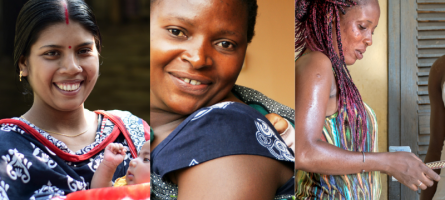


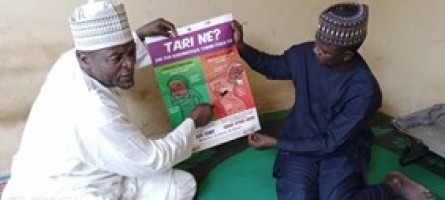



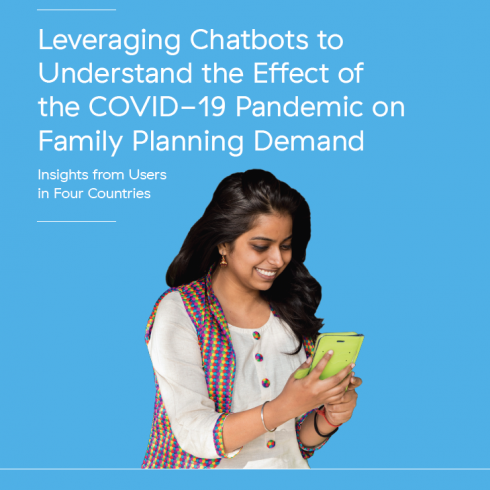
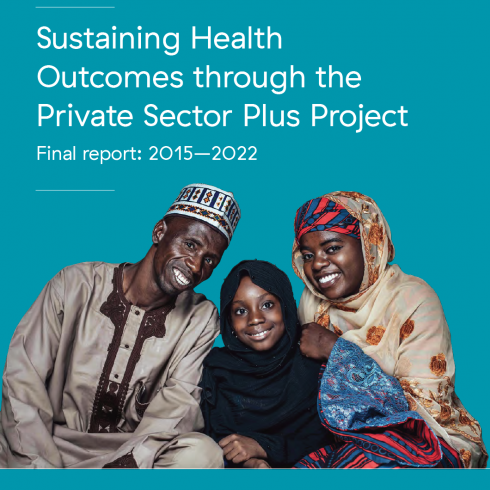

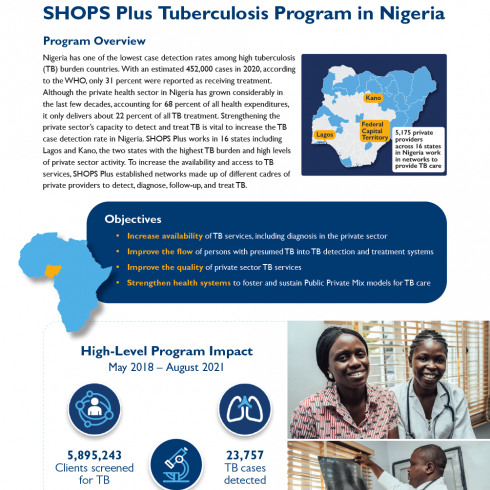
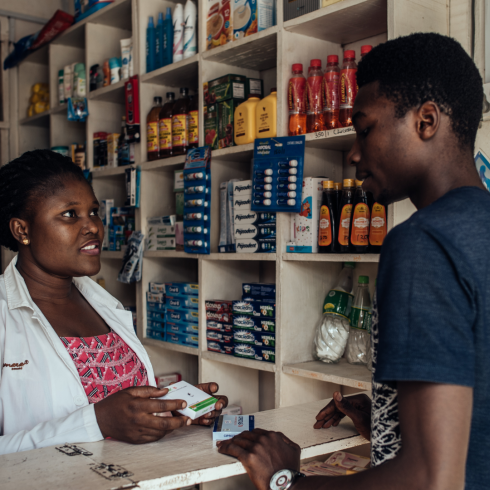
 (1).png)
